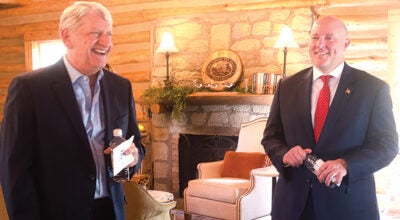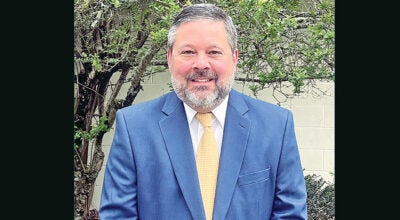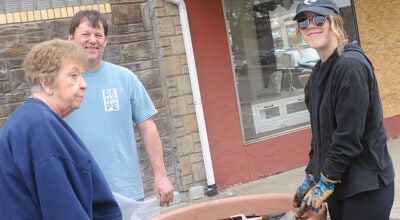Commissioner proposes poll redistricting
Published 11:52 am Friday, January 23, 2009
IRONTON — Lawrence County Commissioner Jason Stephens told the board of elections Thursday afternoon he knows how the board could save money, streamline operations, reduce the need for election day part-time help and make election day less of a headache for some residents in larger precincts. But his plan didn’t get quite the reception he might have hoped.
Stephens submitted to the board of elections a plan to reduce the number of precincts from 84 to 56 and reapportion the number of voters in some areas to even out the disparity between some larger and smaller precincts. This would, he said, reduce long lines at some polling places and ramp up the trickle of voters coming in the door at others.
He may have a point: More than 1,000 voters in the Elizabeth 2 precinct cast a ballot in November. But neighboring Elizabeth 3 handled 400-500 ballots. Labelle 4 in Rome Township handled 1,000 voters while Labelle 3 handled 400-500 voters.
“I just want equal representation for all voters,” said eastern end resident Harriet Scragg, who attended the board of elections meeting. “I saw some people waiting in line two hours just to get up to the table and then wait in line to vote.”
Stephens estimated the county could save $40,000 in each election year with a primary, $20,000 a year in each election year without one. While cost savings for the county is a consideration, his primary goal is to reduce the long lines that beset voters in some polling places in November. Municipalities could save money, too. Stephens estimated realigning precincts in the city of Ironton could save the city as much as $11,000 a year.
Board member Carl Lilly supported Stephens’ plan but when he made a motion to take action, it died for lack of a second.
“Twenty thousand is a lot money to a lot of people but when you look at budget issues it’s a drop in the bucket,” Board chairman Karen Matney Simmons said. She said she would rather reduce long lines on election day by encouraging people to take advantage of early voting.
“I think that would be a good thing,” she said.
Board member Bob Griffith said he was concerned that people may have to drive longer distances, four or five miles, even, to get to the polls.
“We’ve got to watch what we’re doing,” he said.
Lilly countered that people are willing to drive five miles to get to Wal-mart or the grocery store, would they not drive five miles to vote?
“I’m not against this, but I don’t want to cause anyone any problems,” Griffith said.
“We’re causing people problems now,” Scragg replied.
If the lines at the polls were long on election say, board members agreed the board’s annual appropriation for its 2009 budget was short—a couple hundred thousand dollars short.
The board agreed to send the commission a letter asking that more money be put in the election’s office budget. The commission appropriated a little more than $402,000 for 2009—some $200,000 less than requested. That $402,000 must be used not only to operate for this year but pay $116,000 in bills from 2008 that have not been resolved yet.
“Two hundred eighty-six thousand dollars is what we have to work with,” board of elections deputy director Eric Bradshaw said.
Board member Craig Allen indicated he thought maybe the commission should practice what it preaches. He said he wanted the auditor’s office to supply information about what offices in the courthouse has undertaken remodeling in the last few months, which ones have given raises and which ones have complied with the commission’s 15 percent cut. He said he has heard rumors and wants to see if any of the talk is true.
“We need to find out what’s really going on,” Allen said.





